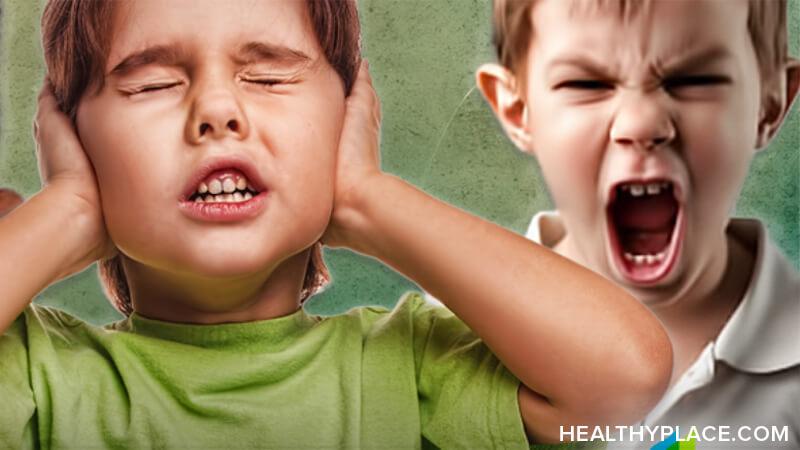Your Child's Meltdown: How to Respond Before, During, After

A child's meltdown happens when he goes into survival mode. He can't control himself, and you, as the parent, may be the only source of safety and emotional regulation. We can teach our children a lot, then, by learning to recognize the stages of our child's meltdown and how to intervene.
A Child's Meltdown Is Caused by a Lack of Self-Regulation
A child's meltdowns result from his lack of self-regulation. This is true of typical kids, but even more so for children like mine with disruptive mood dysregulation disorder (DMDD) or attention-deficit/hyperactivity disorder (ADHD).
Recently, I attended a children's mental health conference where I learned that we can teach our children self-regulation by being "appropriately responsive." This means knowing when to find teaching moments in the middle of a meltdown, as our child comes down from that meltdown, or in the calm periods before and after (Balancing Nurturance with Control When Your Child Is Melting Down).
Surviving Your Child's Meltdown
When a child is in meltdown, he is in fight-or-flight mode. A child with DMDD hits, kicks, or destroys his way out of a situation. A child with anxiety may run and hide. A depressed child may simply give up.
When your child is melting down, first make sure he's safe. If he's suicidal or at risk of harming others, call for help (Suicide in Children). However, if he's safe, but in the middle of screaming or curling up into a ball, you have only one thing to do: self-regulate.
Your child can't self-regulate during a meltdown, but you can. Breathe, remind your child to breathe if he'll hear you, and be present. This means making it clear that, even if you have to leave the area, your child knows you're there for him when he's ready. In my home, we always moved our son to his room, removed all dangerous objects, and let him melt down. We were nearby, but we couldn't be too close because that triggered him more. Now, he heads to his room on his own. He screams and kicks a bedpost or two. He's safe, though, and I'm around to monitor safety.
Understanding Your Child's Meltdown
Once your child's meltdown has calmed enough that he can respond to you, he's in his "emotional" state. This doesn't mean he's doing well or even are "reasonable." This just means he's present, so reflect back at him what you're seeing. Help him identify his feelings and reassure him. "You seem very mad right now. I understand. You love watching TV, and we can't. We can get through this, though."
I know that sounds cheesy but our children with emotional and behavioral disorders are emotionally younger than their physical bodies. They can't necessarily identify anger versus disappointment or fear. They just know they're uncomfortable. Help them identify those emotions as they're happening. Don't ask questions. Don't try to have a discussion. Just name their mood and get them to do breathing exercises, take a walk, or find ways to feel stronger, safer, and more in control.
Learning from Your Child's Meltdown
In the "executive" state, a child can engage in discussion, make choices, and solve problems. In theory, this is his state before and after a meltdown.
It's during this calm that you teach your child behaviors he can use to replace the ones that happen when he's in survival mode. Develop new strategies and practice them regularly. Practice makes them more likely to become automatic so that, when he's working up to a meltdown in the future, he's more likely to use them.
Use "we" phrases when talking about these strategies. Raising a child with intense behaviors is tough, so those coping skills can work for you, too. Research and practice breathing exercises together. Figure out what calms your child. Problem-solving with him not only teaches him self-regulation, but it also helps him feel less alone. Mental illness can feel lonely for all involved.
You don't have to be perfect. Just be safe, consistent, and positive. Be the emotional rock you want to see your child be one day.
See Also:
APA Reference
David, M.
(2018, June 4). Your Child's Meltdown: How to Respond Before, During, After, HealthyPlace. Retrieved
on 2026, January 25 from https://www.healthyplace.com/blogs/parentingchildwithmentalillness/2018/6/your-childs-meltdown-how-to-respond-before-during-after